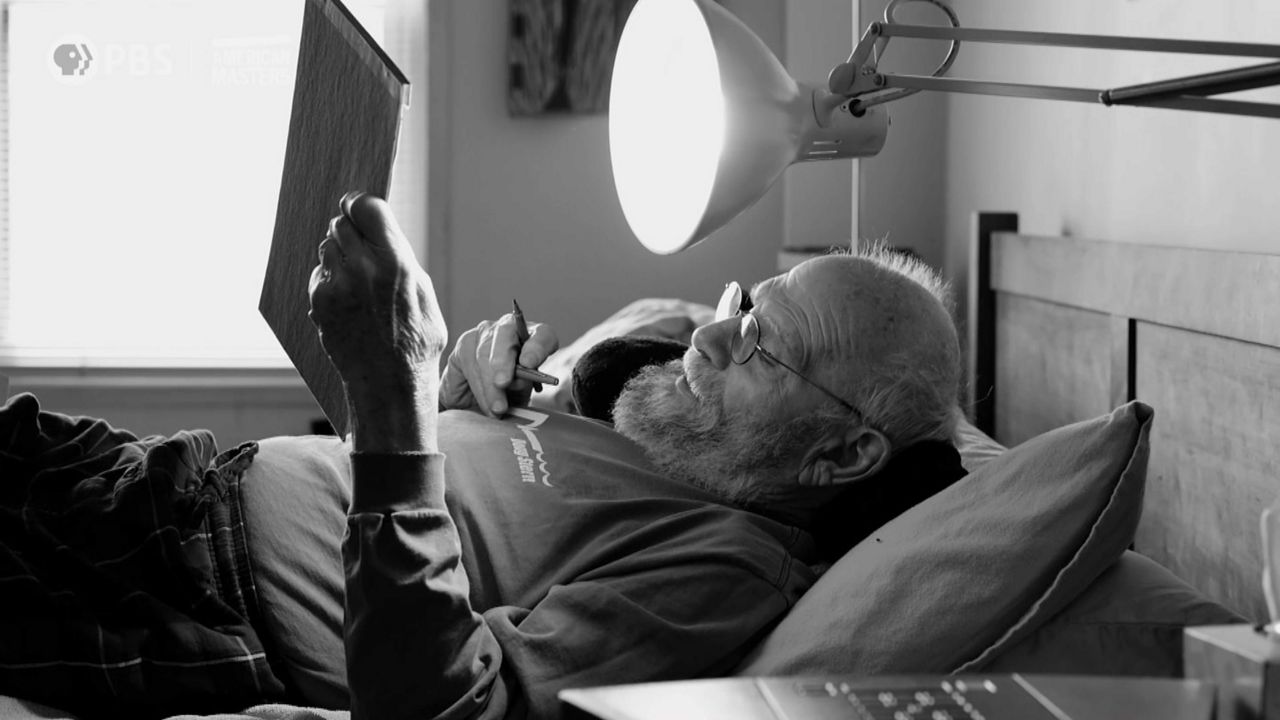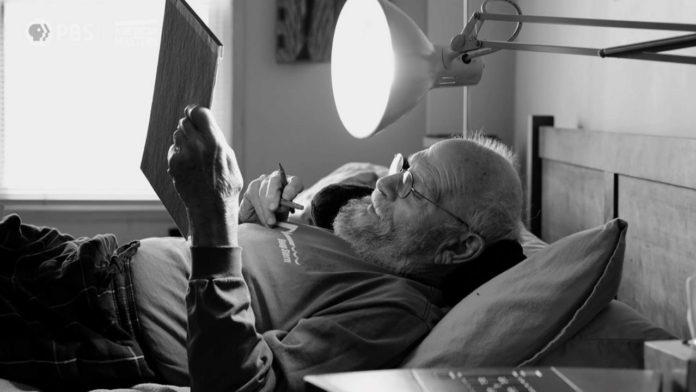
Documentarian Ric Burns spent four months filming with Dr. Oliver Sacks, who wanted to contemplate his life before he died of inoperable cancer.
“Oliver really wanted to start thinking about what his life had meant, and when he got the death sentence he really wanted to not so much come clean, but make an accounting for himself to the world,” says Burns.
Sacks’ life is examined in the new documentary “Oliver Sacks: His Own Life.” The neurologist and best-selling author told stories about his patients, and now, facing death from inoperable cancer, Sacks told his story to Burns. The crew spent four months filming inside the doctor’s Greenwich Village apartment shortly before his death in August 2015. Burns admits his knowledge of Sacks was strictly through the doctor’s work in New York City.
“I knew his work, didn’t know him,” he says. “But I had no idea beneath that kind of avuncular, bearded, you know, Englishman was this kind of sort of radioactive history,” Burns said.
That history included being gay. Sacks fled his home in England after his mother discovered his secret and told him he was an abomination. He landed in the United States, which is where he discovered his life’s work at the Bronx’s Beth Abraham Hospital in 1965. Part of his work at the hospital was turned into the Oscar-nominated film, “Awakenings.” Burns says that film changed his professional life.
“You know, ‘Awakenings,’ the film with Robert De Niro and Robin Williams, came out in 1990,” Burns says. “And the irony of that movie in the story of Oliver Sacks is that it was that movie and its popularity that really opened up unlocked the doors to the academy and the neurological world that had been kind of shut rudely on Oliver before that.”
Burns went on to say that Sacks “kind of, on his own broke down barriers, which we normally have in our minds between science and art and storytelling, because for him it was all part of the same thing.”
Sacks wrote other books from his case studies and some were turned into other movies. Burns believes Sacks’ found a personal and professional haven in New York City.
“I think Oliver would have been dead without New York,” he says. “But he found I think in New York a really congenial world. Being accepted was, I think, really crucial to him. He was really a citizen of the world, which is kind of like what in a way being a New Yorker is.”
“Oliver Sacks: His Own Life” premieres on PBS this Friday, April 9th. It is also available on-demand.







